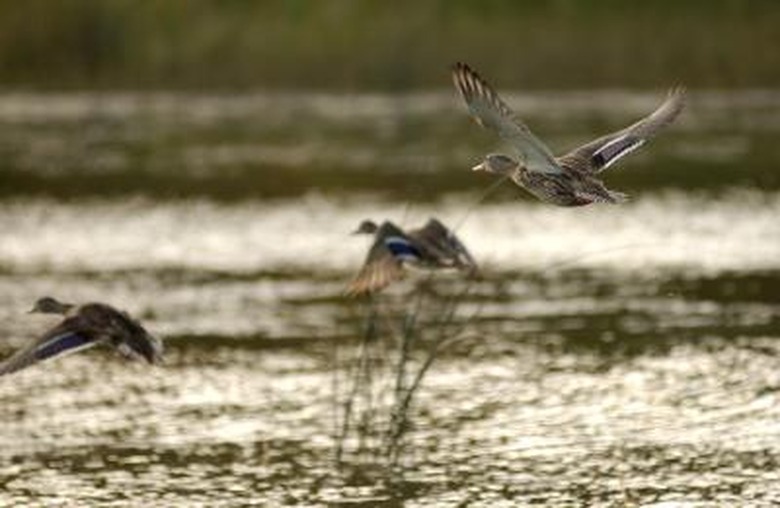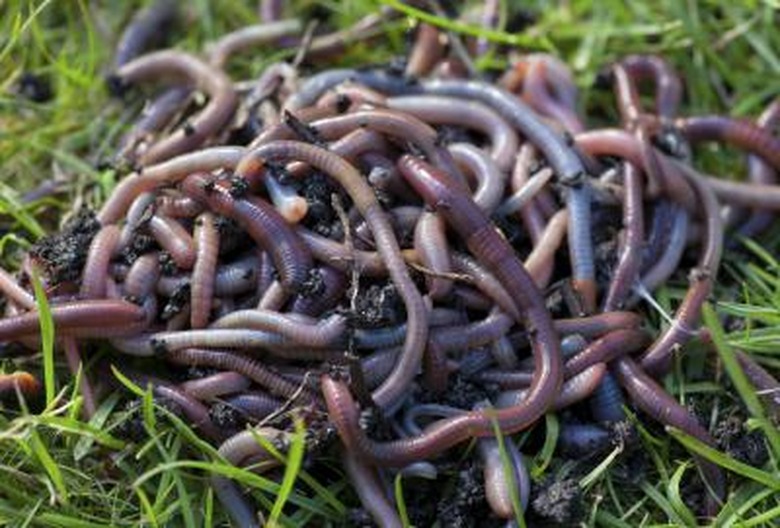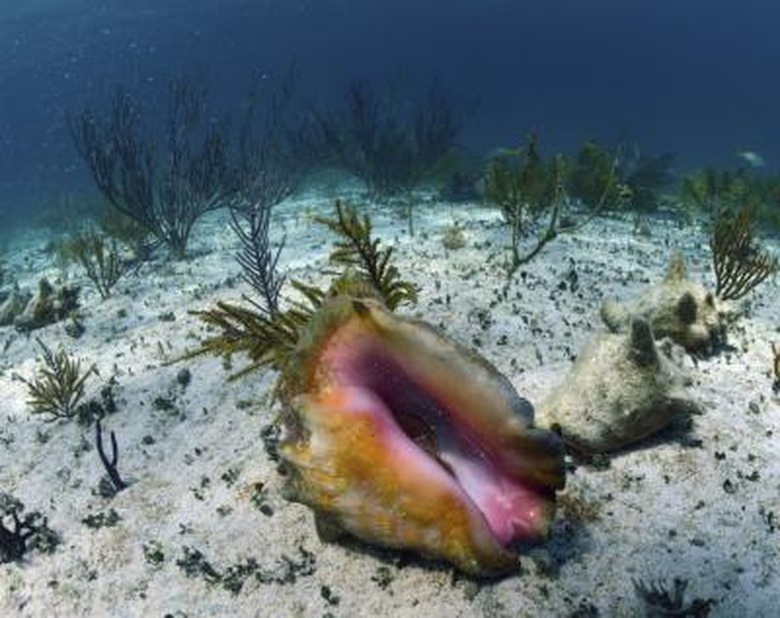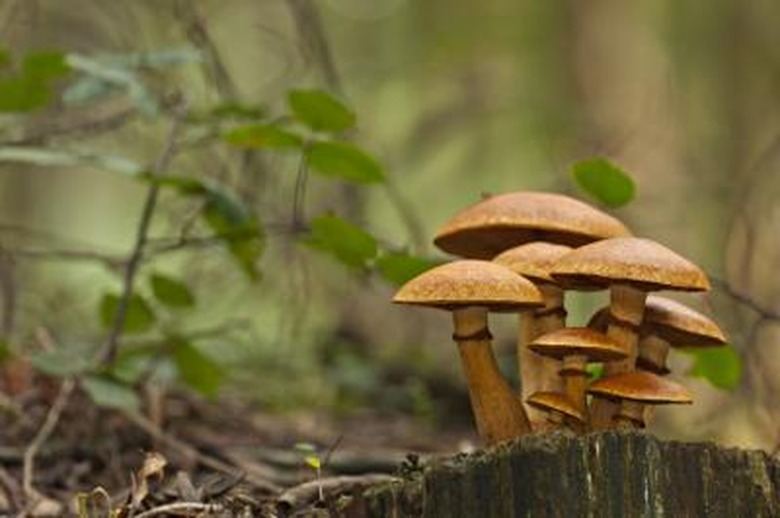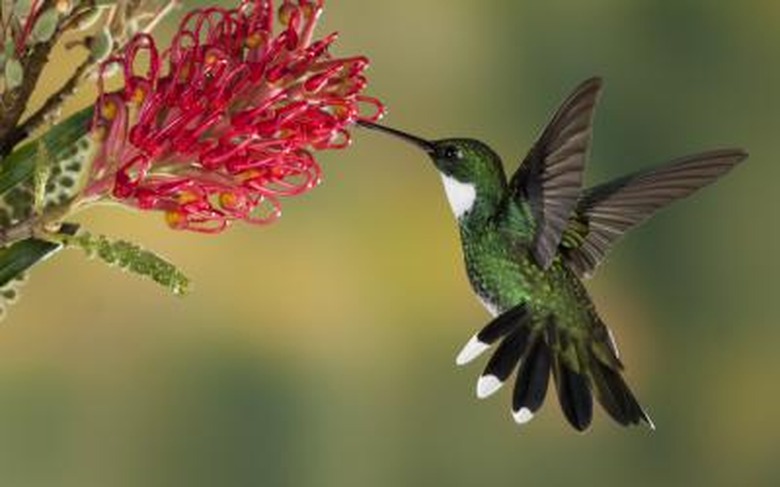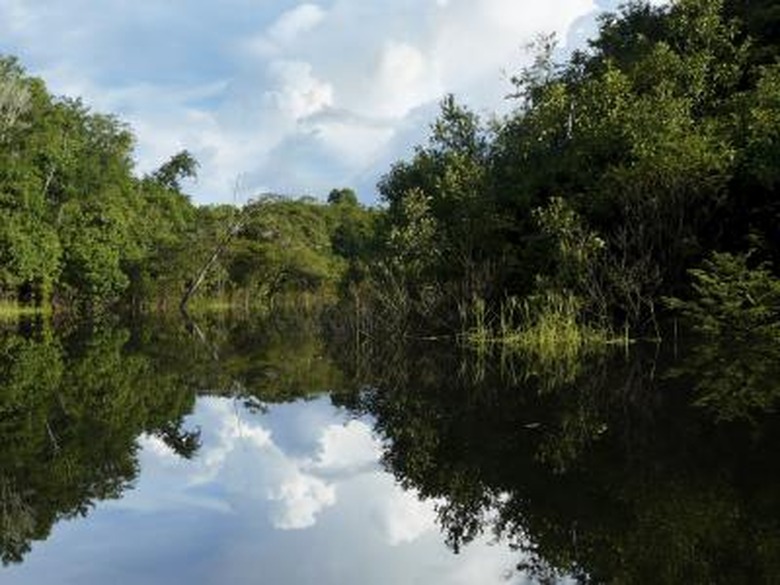What Are The Benefits Of Biodiversity?
The term "biodiversity" literally indicates the diverse biological species within an ecosystem. Biodiversity, though, goes beyond simply a literal list of species; it also encompasses the interactions between the species, how they survive, what they do, and the living conditions in which they exist. Although it is easy to give a definition to the word "biodiversity," it is not quite so easy to explain exactly why we should be interested in and concerned about the biodiversity of an ecosystem. There are, though, specific benefits to biodiversity that affect every one of us on this planet. An ecosystem is in perfect balance, with a keystone species that basically holds the ecosystem in that balance. If any species, but especially the keystone species, is removed, the balance will shift, and the ecosystem will suffer. For instance, in the American West, ranchers killed coyotes because they were harassing their livestock. With the coyotes gone, deer mice, the coyotes' prey, flourished and overproduced. Deer mice are vectors for the hantaviruses. Soon, people in the area were infected with the virus as the deer mice spread into their homes and buildings.
Soils
Soils
Biodiversity includes not only the large plants and animals we see, but also microscopic bacteria, fungi, algae, and a host of tiny insects and invertebrates. These smaller organisms are the ones responsible for creating soil and maintaining the quality of soil. Worms are well known for conditioning soil by digging through and aerating it and providing nutrients from their castings or waste. Bacteria and fungi degrade organic material, which then further breaks down in the soil, where plants can use the nutrients.
Water Quality
Water Quality
The benefits of biodiversity include keeping water quality pure. In wetlands, plants will take up contaminants in water and process and purify the water. Shellfish such as mollusks take in nutrients from the water, thereby preventing a condition called eutrophication, which can cause a huge increase in organisms in the water that leads to oxygen depletion and mass die-offs. If any species is removed from the food webs of an ecosystem, the ecosystem can crash, and in the case of water quality, contaminants can remain and cause immense additional problems.
Waste Removal
Waste Removal
The biodiversity of microbes, fungi, and other smaller organisms is important in decomposing waste matter. Organic material in nature, such as leaves, logs and twigs, and dead animals and insects, is all degraded and decomposed by the biodiversity of organisms in the ecosystem. It is a delicate balance, in which certain insects or microbes perform a vital function in removing waste from the environment, making it cleaner and less ripe for the spread of disease.
Pollination and Seed Dispersal
Pollination and Seed Dispersal
Bees are not the only organisms responsible for pollinating plants and crops. In fact, birds, bats, and butterflies play a vital role in spreading pollen and in dispersing seeds. Butterflies and hummingbirds, for instance, feed on nectar and can transport pollen from flower to flower. Birds and fruit bats eat the fruit and nuts from plants, then disperse the seeds inside through their fecal matter.
Medicine
Medicine
Many modern medicines incorporate natural ingredients from plants that are found in jungles or forests, notably the Amazon rainforest. There is a huge number of plant species used in modern medicine, somewhere around 50,000 to 70,000. Should any of these plants become extinct, medicinal cures would suffer. Examples of plants used in modern medicine include quinine from the cinchona tree in South America, used to treat malaria, cortisone from Central American yams, which is a main ingredient in birth control pills, and novacaine, which is derived from the coca plant and used as an anesthetic in dentistry.
Ecotourism
Ecotourism
Awareness of biodiversity has recently led to a boom in ecotourism. Travel companies promote tours into off-the-beaten-path locations, such as forests and jungles, where tourists can go on river cruises, hike, and observe and enjoy nature without disturbing the ecosystem. Money from ecotourism goes back into the region and helps to preserve the diversity of plants and animals.
Cite This Article
MLA
Argent, Gemma. "What Are The Benefits Of Biodiversity?" sciencing.com, https://www.sciencing.com/list-6177330-benefits-biodiversity-/. 9 January 2018.
APA
Argent, Gemma. (2018, January 9). What Are The Benefits Of Biodiversity?. sciencing.com. Retrieved from https://www.sciencing.com/list-6177330-benefits-biodiversity-/
Chicago
Argent, Gemma. What Are The Benefits Of Biodiversity? last modified August 30, 2022. https://www.sciencing.com/list-6177330-benefits-biodiversity-/
